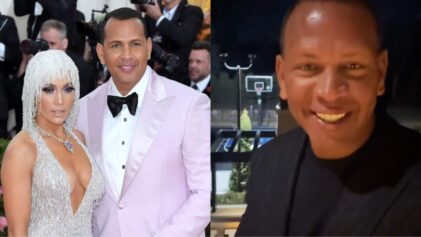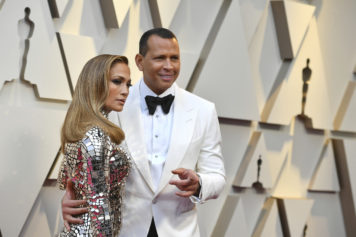
The suit seeks to vacate Horowitz’s ruling, based on the arbitrator’s “manifest disregard for the law,” his “evident partiality,” and refusal “to entertain evidence that was pertinent and material to the outcome.”
The complaint calls the 162-game ban “wholly unjustifiable” and alleges that Horowitz ignored the stipulation of baseball’s Joint Drug Agreement that calls for a 50-game ban for a first-time drug offense.
“He ignored the clear disciplinary action of the JDA,” the complaint reads, referring to the arbitrator. “Accordingly, the arbitration award is not legitimate as it does not draw its essence from the JDA or [C]BA.”
Horowitz explained in his ruling that he factored in “Rodriguez'[s] obstruction of MLB’s investigation” and “the prolonged time period … with which he used or possessed the three prohibited substances.”
“While the length of the suspension may be unprecedented for a MLB player,” Horowitz wrote, “so is the misconduct he committed.”
Rodriguez’s 42-page complaint names Major League Baseball and the Major League Baseball Players Association as defendants and includes among its exhibits Horowitz’s written ruling on A-Rod’s appeal.
In it, Rodriguez alleges the players’ union breached its “duty of fair representation” and charges MLB and the MLBPA with imposing a suspension without just cause.
“It is unfortunate that Alex Rodriguez has chosen to sue the players association,” MLBPA executive director Tony Clark said in a statement. “His claim is completely without merit, and we will aggressively defend ourselves and our members from these baseless charges.”
Earlier in the afternoon, U.S. District Judge William H. Pauley III cleared the way for the release of Horowitz’s decision, which was opposed by the players’ association on the grounds it could violate the confidentiality pact in baseball’s collective bargaining agreement.
Pauley ruled that baseball had already violated the confidentiality agreement when Commissioner Bud Selig and COO Rob Manfred, who ran baseball’s investigation into Rodriguez’s involvement with the Biogenesis anti-aging clinic suspected of supplying ballplayers with illegal performance enhancing drugs, were interviewed on CBS-TV’s “60 Minutes” on Sunday night.
“Given the intense public interest in this matter and Commissioner Selig’s disclosures last night on ’60 Minutes,’ it’s difficult to imagine that any portion of this proceeding should be under seal,” Pauley said. “Mr. Rodriguez is directed to file his unredacted complaint with the attached exhibits.”
“We’re thrilled,” Jordan Siev, one of Rodriguez’s attorneys, told ESPNNewYork.com. “We want the entire record to be public. We want everyone to be able to see exactly what [Anthony] Bosch said.”
Bosch, the proprietor of the now-shuttered clinic, was baseball’s key witness against Rodriguez.
The complaint alleges that Horowitz denied Rodriguez and his attorneys the right to cross-examine Bosch and Selig, who opted not to testify in the appeal. The complaint also alleges that Horowitz denied Rodriguez’s attorneys the right to examine the BlackBerry devices that baseball alleges were used to transmit incriminating text messages between Rodriguez and Bosch.
“These are only some of the egregious actions taken by Arbitrator Horowitz during the grievance process, each of which standing alone warrants vacatur of the arbitration award,” the complaint reads. “And together they demonstrate the inherent unfairness and pre-ordained result attendant to the arbitration process.”


